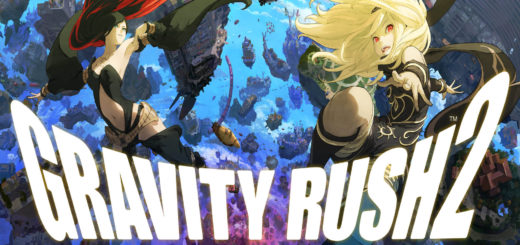WHEELS OF AURELIA Review
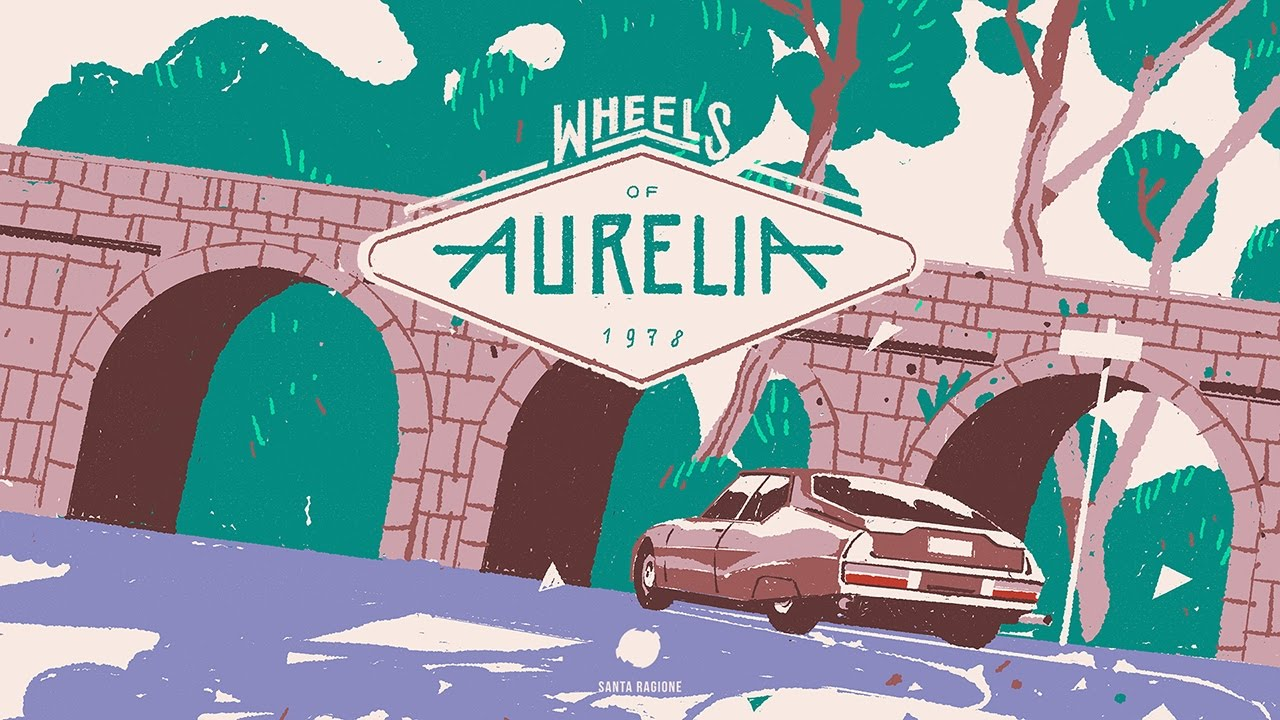
One of the strengths of indie games are their license to experiment with different interpretations of what a “game” can be. However, this is not a treatise on the philosophical nature of video games, nor is it a love letter to indie gaming. This is a review of WHEELS OF AURELIA, a game designed by self-styled “micro game design studio” Santa Ragione. AURELIA takes place in Italy in 1978, and despite the automotive imagery, is primarily a narrative-driven adventure. The main character, Lella, is a feminist racer punk trying to find purpose along the ancient coastal road of the Via Aurelia, also known by it’s official designation as Strada Statale 1.
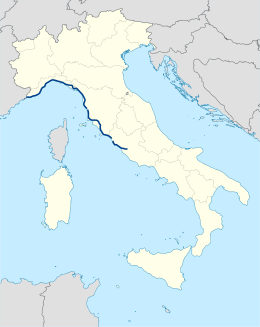
You’d think there’d be better road maps of European highways on the internet, but you work with what you have
Though occasionally billed as a driving simulator and taking place almost entirely in a car, the actual driving here is incredibly simple, and, in fact, almost non-existent. If you simply take your hands off the controls, the car will drive itself. You’re able to speed up, but then you’ll have to actually steer and you won’t be able to pick up hitchhikers, which are a somewhat vital part of gameplay. What really does the driving is the game’s narrative and the various conversations Lella has with the characters she meets on the road. The entire game takes about 15-20 minutes to complete, but — similar to games like HITMAN and OXENFREE — emphasizes repetition to experience all the 16 possible endings. The roads Lella takes and companions she picks up affect the specific ending; sometimes she’ll enter a domestic partnership with one character, other times she’ll go to jail for being a getaway driver for robbers, and sometimes she’ll prevent major terrorist events. Everything varies depending on what responses she gives to the other characters.
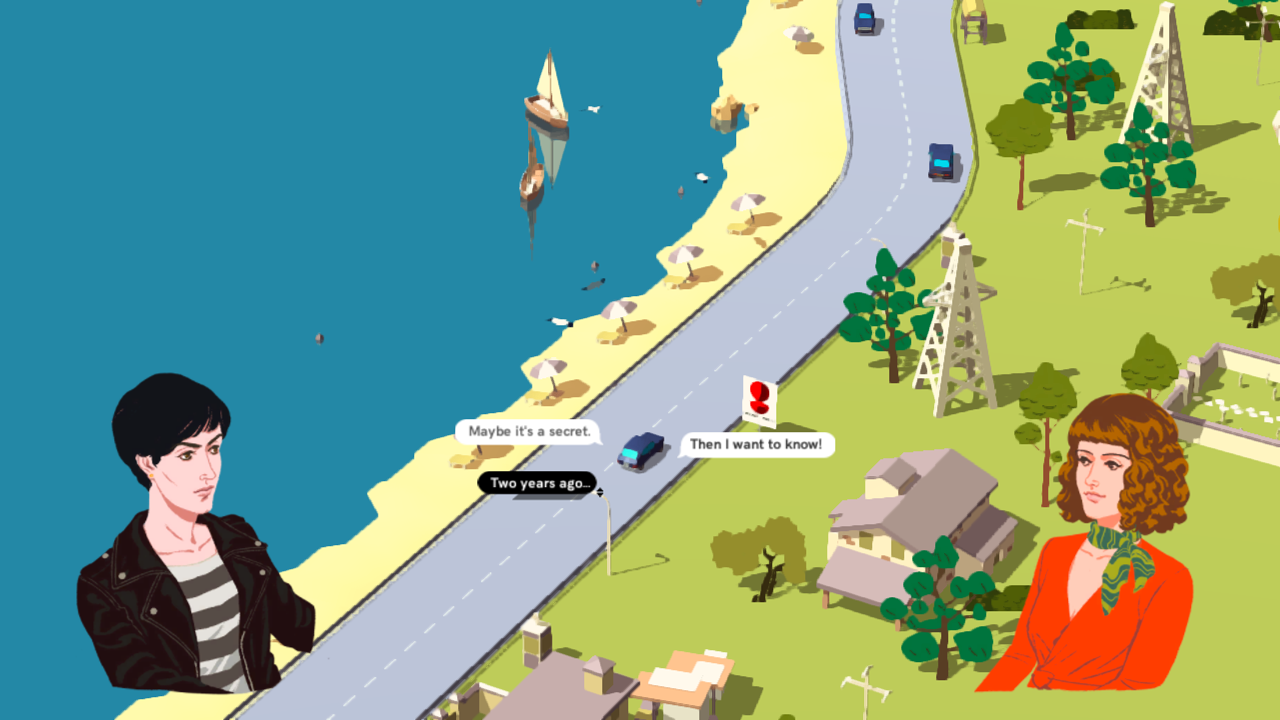
With “THE JERK” DLC, Lella reveals that she was actually born a poor black child
AURELIA, as mentioned previously, takes place in Italy during the late 1970s. For those unfamiliar with this period in Italian history, the ‘60s through early-ish ‘80s were known as the Anni di Piombi, or Years of Lead. The years following the post-WWII economic boom of the 1950s were filled with great violence, and basically there were roving bands of militant Communists and Neo-Fascists committing murder and destruction throughout the country. Train stations were bombed, riots were had, and the game mentions on more than one occasion the violent kidnapping of Italian Prime Minister Aldo Moro by Communist militants Brigati Rossi (BR) or Red Brigades.
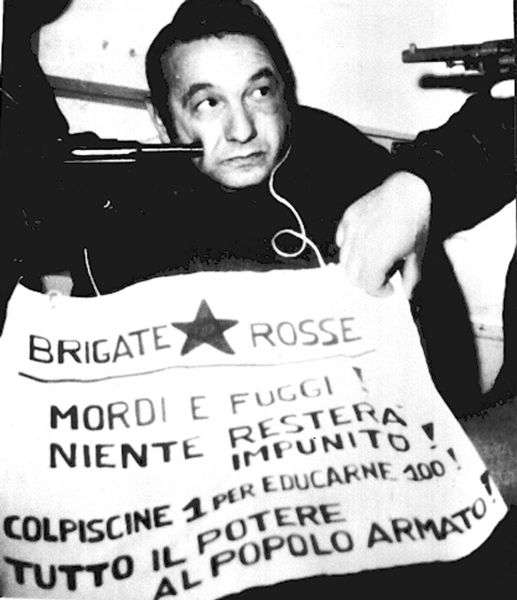
The Red Brigades were, more often than not, the furthest thing from fucking around
In that sense, WHEELS OF AURELIA can be very atmospheric, nailing the cultural climate of the setting. Characters frequently reference current events and debate their outcomes and meanings. In addition, the roads are flanked with relatively authentic architecture (as authentic as the lo-fi aesthetic will allow) depending on which Italian city the player happens to be driving through. And editors of the music section be damned, WHEELS OF AURELIA’s prog-rock-inspired soundtrack is one of the most fun songs I’ve heard in a long time.
I dare you to tell me this song doesn’t immediately get you hyped
AURELIA pushes its sense of narrative to the forefront, but unfortunately, that’s where it really stumbles. It very much wants to be a TellTale game, and to a lesser degree, OXENFREE, as it really emphasizes characters, their relationships to each other, and how the dialogue between them develops these relationships. However, the dialogue can become somewhat nonsensical, and oftentimes yanks the player out of the meticulously crafted atmosphere. The game works by giving the player the length of time it takes to drive from city to city to fully explore the dialogue between characters, and once a city or hitchhiker is reached, it immediately shifts to the appropriate dialogue chain without any regard for the previous conversation. On some occasions, topics will even be brought up that no one has mentioned before, though this typically only happens if players restart the game from a checkpoint, rather than the start. This issue, however, can severely impact your ending, where the game solemnly condemns Lella or another character to a fate that relates to a line of dialogue that the player never encountered.
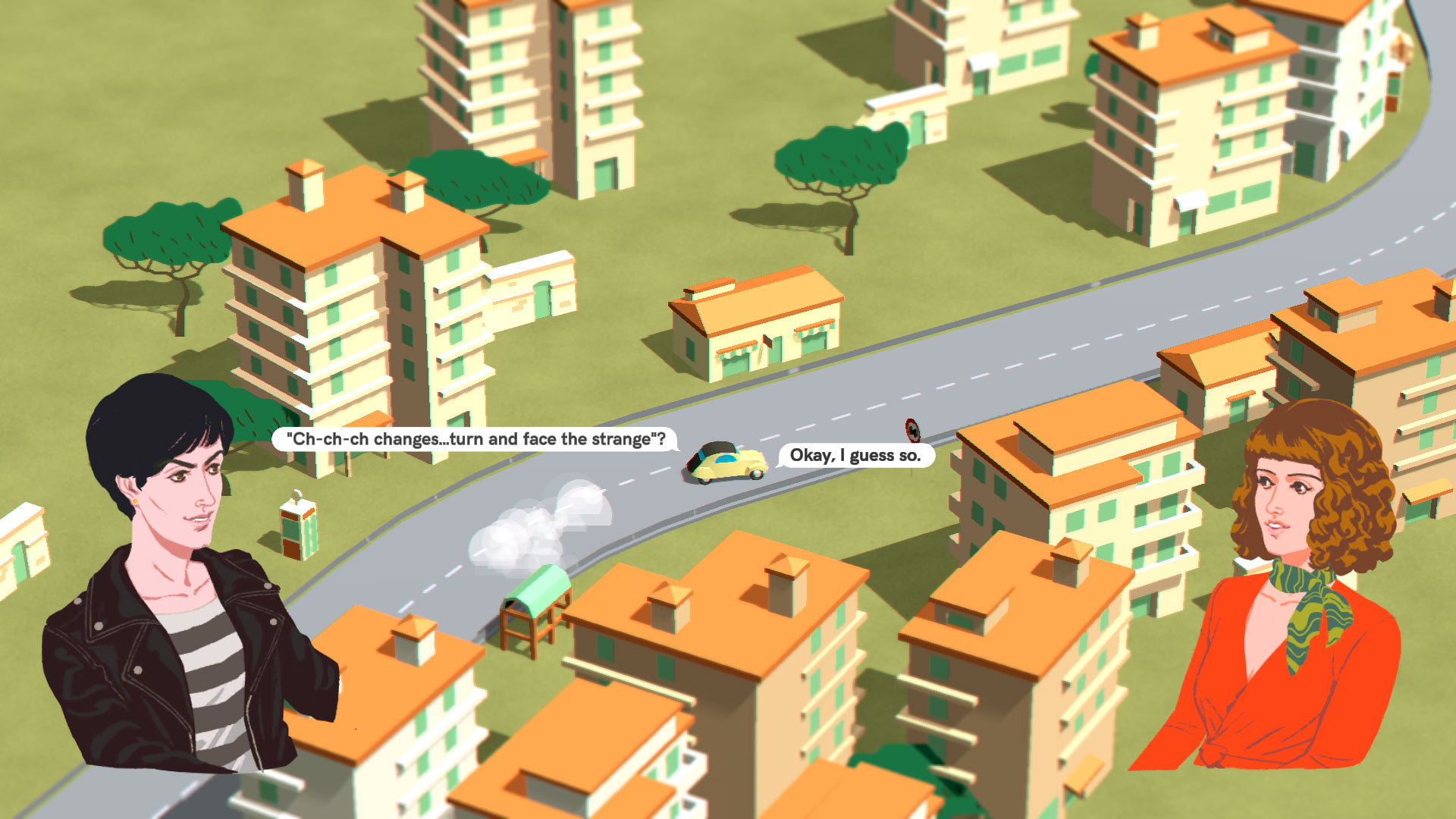
This actually leads to an ending where Lella ghostwrites “China Girl”
Each playthrough is too short to make me really care about the characters that I meet. Olga is the first other person Lella encounters, and in the second city she reveals she’s pregnant. This feels like it’s supposed to be major development, but it just feels unimportant and somewhat trivial. I’ve known this person for maybe two and a half minutes, and I’m supposed to convince her to come with me to an abortion clinic in France? I’ve mentioned OXENFREE at least once during this review already, but it’s a good example of creating characters that I care about enough in general to want to play through again and see what I can do different. While its length is kind of a turn-off for repetitive playthroughs, the desire is still there.
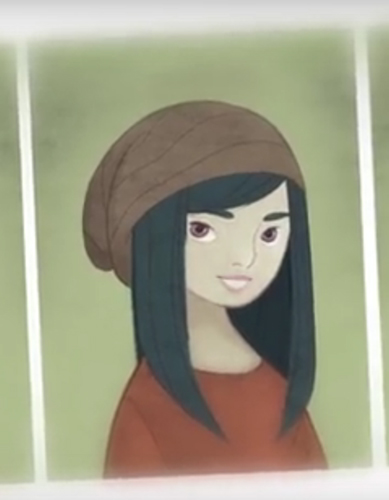
Well, that and *cough* a few other things…
In a fashion also similar to relationship-driven games, the conversations have an impact on the final ending, but in AURELIA’s case, that impact is isn’t always clear. I almost yearn for text at the top of the screen letting me know that Olga will remember how much of a bitch I’m apparently being to her (in the most exemplary case of “if you can’t say something nice, don’t say anything”), but the game just kind of springs that at you at the end with nary a hint beforehand.
WHEELS OF AURELIA is a beautiful cruise down a little-known period in Italian history, but it ends up shooting itself in the wheels by failing to master its own themes. When a game presents itself as conversation-driven, the mechanics need to be all there. AURELIA tries to replicate the experience of carrying a conversation with someone in the car, which is a fine and conceptually interesting conceit, but driving while speaking are very difficult due to the controls. It’s almost worth it to just not drive at all, seeing as the game auto-drives when there’s no input and there’s no real consequence for hitting the other cars on the road or the guardrails. The game looks beautiful, sounds great, and is conceptually intriguing, but I just wish it ran better, kind of like the country of Italy itself.
Verdict: Do Not Recommend
Reviewed on PC, also available on PlayStation 4

